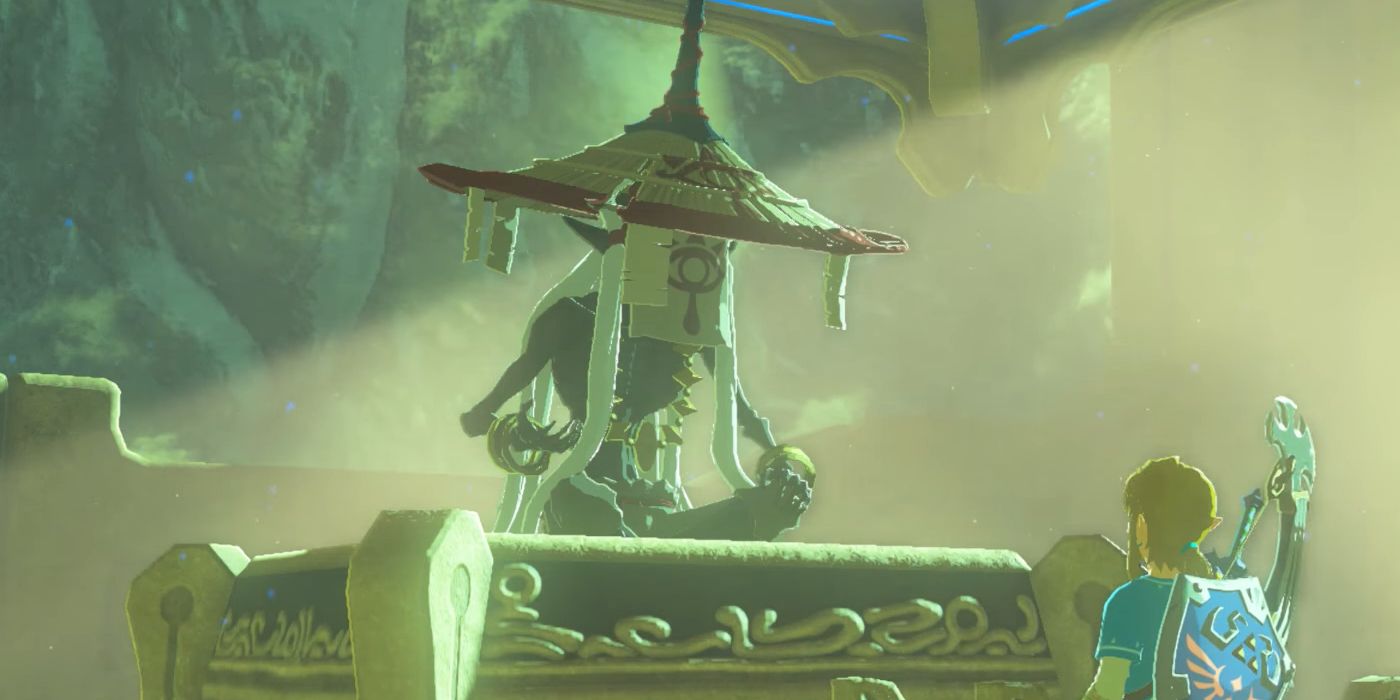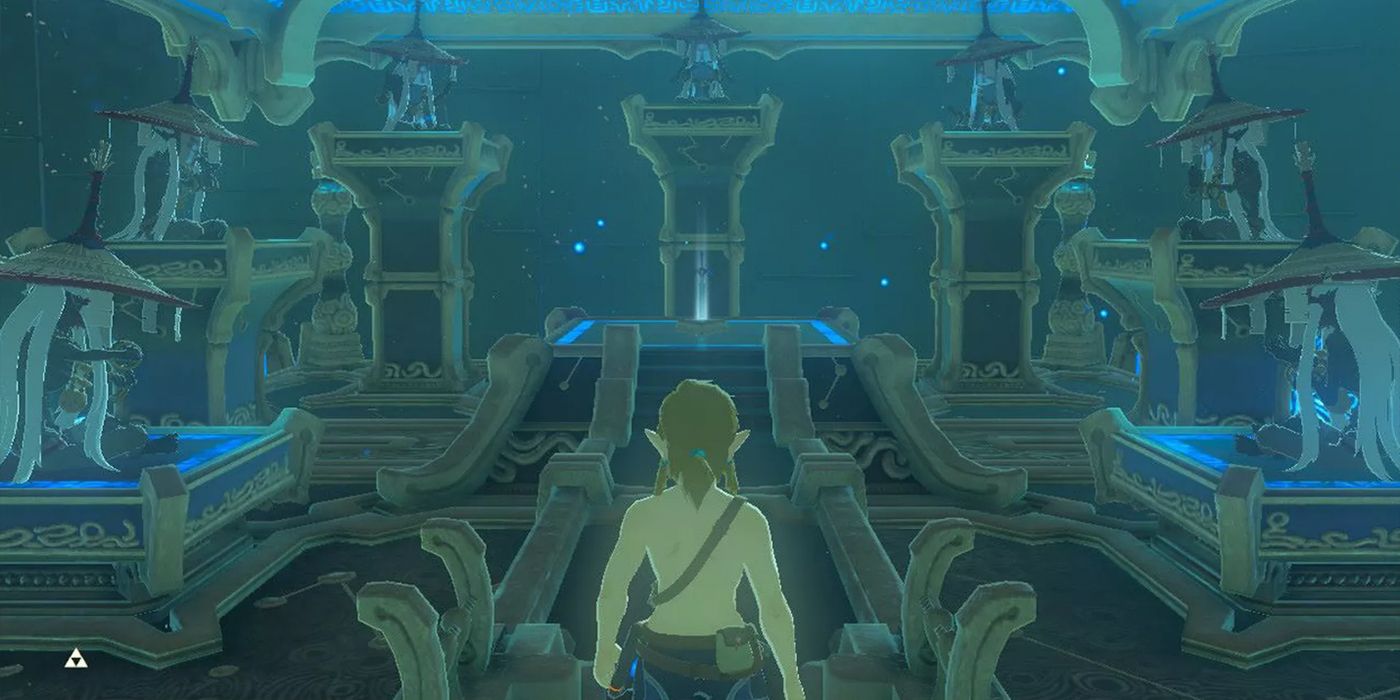
Throughout its open-world expanse, The Legend of Zelda: Breath Of The Wild deepens the lore of its franchise with a unique blend of high-tech gadgetry and ancient, in-universe history. One of the integral examples of the latter are Sheikah Monks, the mummy-like gurus who inhabit the 120 Ancient Shrines scattered across Hyrule, rewarding Link when he completes each Shrine's puzzle. So original is their incorporation into this crucial function that it may come as a surprise to learn Breath of the Wild's mummified monks are based on a real-life religious practice.
The haunting visual of a mummified corpse in a praying position is emotionally affecting, but it also strengthens the core aesthetic of Breath Of The Wild, where many interactions and settings are underscored by the melancholy of the passage of time. The story begins with Link awakening from a 100-year slumber in a tomb, long after the Great Calamity ravaged Hyrule. That he must frequently interact with monks who remain eternally ensconced in their own ancient tombs adds another layer of poignance to his journey.
These Sheikah Monks resemble sokushinbutsu, mummified Buddhist monks. According to Atlas Obscura, this long-abandoned ritual involved monks observing meditation to the point of death, mummifying themselves in the process. Their practice was inspired by a ninth-century Buddhist monk named Kukai, who was said to have not died but instead "crawled into his tomb and entered nyūjō, a state of meditation so profound that it induces suspended animation."

A clear difference between the Sheikah and their real-world counterparts is that of abundance. While Link can find dozens of Sheikah Monks throughout the land, relatively few sokushinbutsu have been found across the globe. Nevertheless, they both evoke a similar blend of eerie and divine when observed. Especially given how much the sokushinbutsu evolved in Japan, in particular, they fit BotW's wide array of Japanese cultural references.
If anything, The Legend of Zelda: Breath of the Wild proved ahead of the curve in referencing this Buddhist practice in the video game realm. Two years after its release, FromSoftware's highly acclaimed 2019 hit Sekiro: Shadows Die Twice featured enemy monks also inspired by the sokushinbutsu. While Breath Of The Wild 2 still appears to be a ways away from release, it will be interesting to see what other Buddhist and/or spiritual motifs Nintendo might incorporate into its story.
Source: Atlas Obscura
from ScreenRant - Feed https://ift.tt/3aGaWPb


0 Comments